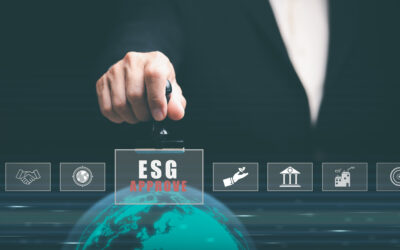Honesty and responsibility are key in the field of sustainability reporting. Important work in this area has been done by the European Financial Reporting Advisory Group (EFRAG), notably with the creation of the European Sustainability Reporting Standard (ESRS). In response to stakeholder requests for more information about the technical details, EFRAG has issued clarifications in an effort to increase comprehension and conformity. This blog article delves into the second set of explanations offered by EFRAG to tackle the technical questions of stakeholders regarding the ESRS.
Understanding ESRS:
To improve sustainability reporting’s openness and uniformity, the European Union developed the European Sustainability Reporting Standard, also known as ESRS. In a standardized style, it lets businesses share their sustainability results with stakeholders and makes it easier to compare results.
Importance of Stakeholder Engagement:
In order to adapt the ESRS to the changing demands of sustainability reporting, stakeholder involvement is crucial. In order to improve stakeholder knowledge and standard adherence, EFRAG aggressively seeks input and handles technical questions.
Second Set of Explanations:
The second set of explanations outlining the ESRS’s technical aspects has been issued by EFRAG. For the benefit of all parties involved, these clarifications address a broad variety of questions, such as the extent of reporting, methods of data collecting, and conformity with international standards (EFRAG Technical Implementation Questions ).
Reporting Scope:
The ESRS’s reporting scope, including the kinds of companies included and the necessary disclosures, is a common point of contention among stakeholders. Stakeholders can be certain that the standard is relevant to their organizations because of the insights into scope concerns provided by EFRAG.
Data Collection Methodologies:
Robust sustainability reporting requires efficient data collecting. Data gathering strategies and best practices may be areas of interest for stakeholders with questions. EFRAG provides recommendations for data gathering procedures, stressing the significance of honesty, precision, and openness in sustainability reports.
Alignment with International Standards:
For sustainability reports to be consistent and comparable, it is essential that they adhere to international standards. By responding to stakeholder questions on how the ESRS fits in with current international frameworks, EFRAG promotes harmonization and helps with sustainability initiatives around the world.
Enhancing Clarity and Consistency:
Clarity and consistency in applying the ESRS are two goals that EFRAG hopes to achieve through these explanations. This guidance can help stakeholders successfully negotiate the intricacies of sustainability reporting, leading to more accountability and good impact.
Future Directions:
Engaging with stakeholders and addressing their technical inquiries on the ESRS is something that EFRAG is still dedicated to doing. Ongoing communication and cooperation with the sustainability reporting community will direct the continuous improvement and refinement of the ESRS.
Conclusion:
To further promote comprehension and agreement on the European Sustainability Reporting Standard, EFRAG has produced a second set of explanations, which is a major step forward. This guidance is a great resource for stakeholders starting out on the path of sustainability reporting; it will help them be more open and accountable while also making strides towards the SDGs. By working together and actively engaging with stakeholders, EFRAG is making a positive impact and shaping the future of sustainability reporting.




